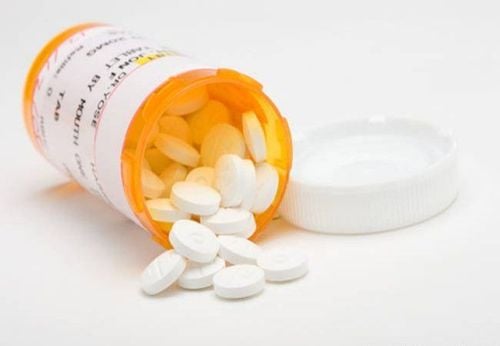This is an automatically translated article.
Article by Doctor, Doctor Le Thi Huong - Department of Examination - Vinmec Times City International HospitalElderly people can face many diseases at the same time and require regular treatment. It is important to note that taking more medications and the normal changes in the body caused by aging can increase the likelihood of drug interactions and unwanted reactions.
1. Drug interactions and the elderly
In the elderly, changes in the body can affect the way medications are absorbed and used. Due to changes in the body, the risk of drug interactions in the elderly is also higher. For example, changes in the digestive system can affect how quickly a drug is absorbed into the bloodstream. The circulatory system may slow down, which can affect how quickly the drug travels to the liver and kidneys. The liver and kidneys may also work more slowly, affecting how the drug is eliminated from the body.>>> Distinguish between psychotropic drugs and narcotics
Drug interactions in clinical pharmacy are the interactions between one drug and another, between a drug and the physiological or pathological state of the body. The results of drug interactions make the drug increase / decrease the therapeutic effect or generate some unwanted effects that are detrimental to the patient.
Food-drug interactions are caused by the drug reacting with the food or drink. In some cases, the food in the digestive tract can affect how the drug is absorbed. Some medications can also affect how nutrients are absorbed or used in the body. Drug and alcohol interactions can occur when drugs react with alcoholic beverages.
2. What are the side effects of the drug?
Side effects are unforeseen symptoms or feelings you have while taking a medicine. Most medication side effects are not serious and go away on their own. However, some people can have severe and even severe reactions. To help prevent possible reactions to medications, older people must know about the medicines they take and their side effects.Monitor drug side effects to help your doctor know how your body is responding to the medication. If you experience unwanted side effects, call your doctor immediately for timely intervention.
>>> Avoid drug interactions as recommended by FDA (USA)

3. What to do to avoid drug interactions in the elderly?
It is important to share everything with your doctor or health care professional about your medical condition and the medications you are taking. If possible, make a list of questions and medications you take, including prescription and over-the-counter (OTC) medications, to send to your doctor. While taking the drug, keep in touch with your doctor. If you regularly take prescription drugs, ask your doctor to check how they are working. Is it necessary and if so, is there anything you can do to cut back? Before prescribing, talk to your doctor about your medical history, eating habits (e.g. a very low-fat or high-calcium diet), and recognize and remember your schedule. take your own medicine. If you have trouble swallowing pills, ask your doctor, nurse or pharmacist if you can use the liquid form or crush your tablets. Never break, crush or chew the tablets without consulting your healthcare professional first. You should write down a complete medication schedule, with instructions on when and how to take it exactly.4. What to ask to avoid drug interactions?
To avoid drug interactions in clinical pharmacy, some questions need to be asked before a doctor or pharmacist prescribes them:What is the name of the drug and what does it do? Is there a less expensive alternative? How and when and for how long do I take the medicine? Should it be taken with water, food, or with a particular medicine, or at the same time as other medicines? What should I do if I miss or forget a dose? What is the appropriate dosage? For example, does "four times a day" mean you have to take it at midnight? Are there any other special instructions to follow? What foods, drinks, other medicines, supplements or activities should I avoid while taking this medicine?

In short, drugs are an important part of the treatment of a disease because they often allow people to remain active and independent. However, for the elderly, caution should be exercised during drug use to avoid unwanted interactions and reactions.
Please dial HOTLINE for more information or register for an appointment HERE. Download MyVinmec app to make appointments faster and to manage your bookings easily.














